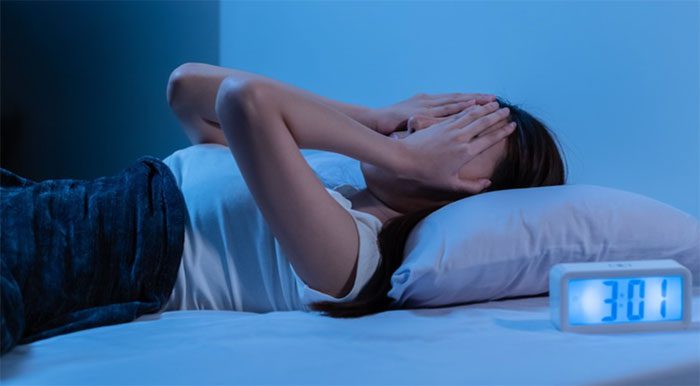A recent study reveals that we often feel much older than we actually are when we experience sleep deprivation. This has negative effects on both physical and mental health.
According to research published in the medical journal BMJ Open, just 2 nights of sleep deprivation can make us feel significantly older. Conversely, a good and regular sleep helps our minds feel at ease, allowing us to forget about this feeling.
A research team from Sweden found that, on average, participants felt they were 4 years older when they only got 4 hours of sleep over 2 consecutive nights. Some even believed they aged by decades.

Sleep deprivation makes us feel older – (Image: SHUTTERSTOCK).
In contrast, those who spent 9 hours in bed reported feeling about 3 months younger than their actual age.
Dr. Leonie Balter, a psychologist and author of the study, stated: “Sleep has a significant impact on how old you feel, and this affects your long-term sleep patterns. Even if you only sleep less for 2 consecutive nights, it still greatly affects your perception of age.”
According to Dr. Balter, feeling older can also impact both physical and mental health.
Individuals who feel this way often tend to eat unhealthily, exercise less, and are less willing to socialize or engage in new experiences.
Dr. Balter’s team conducted two separate studies. In the first survey, 429 participants aged 18 to 70 answered questions about how they felt after several nights of sleep deprivation over a month.
The level of drowsiness among these individuals was also assessed using a standard scale commonly used in psychological research.
The research team found that, on average, sleep-deprived volunteers felt about 3 months older than their actual age. Meanwhile, those who slept well felt up to 6 years younger.
However, at this stage, the research team was still uncertain whether sleep deprivation could indeed make people feel older.
In the subsequent survey, Dr. Balter’s team further studied 186 individuals aged 18 to 46 about how they felt after 2 nights of adequate sleep (9 hours) and inadequate sleep (4 hours).
The results showed that, on average, volunteers felt 4.44 years older when they did not get enough sleep.
“If you want to feel youthful, the most important thing is to protect your sleep,” Dr. Balter advised.
Additionally, this feeling also depends on individual sleep habits, which fall into two main groups: “early birds” (go to bed early, wake up early) and “night owls” (stay up late, wake up late).
“Night owls” often feel older even when they get enough sleep, while “early birds” feel similarly when their sleep is disturbed.
This finding can help “shape” individuals towards healthier lifestyle habits, thereby allowing them to reap related benefits, Dr. Balter concluded.
Exercise Improves Sleep Quality Another 10-year study involving over 4,000 participants, published in BMJ Open, showed that regular exercise 2-3 times a week improves sleep quality. The research team analyzed the exercise habits and daytime drowsiness levels of all volunteers. They found that those who exercised twice a week (for over an hour each time) fell asleep 42% easier compared to non-exercisers and 55% easier compared to those with “normal” sleep. |


















































